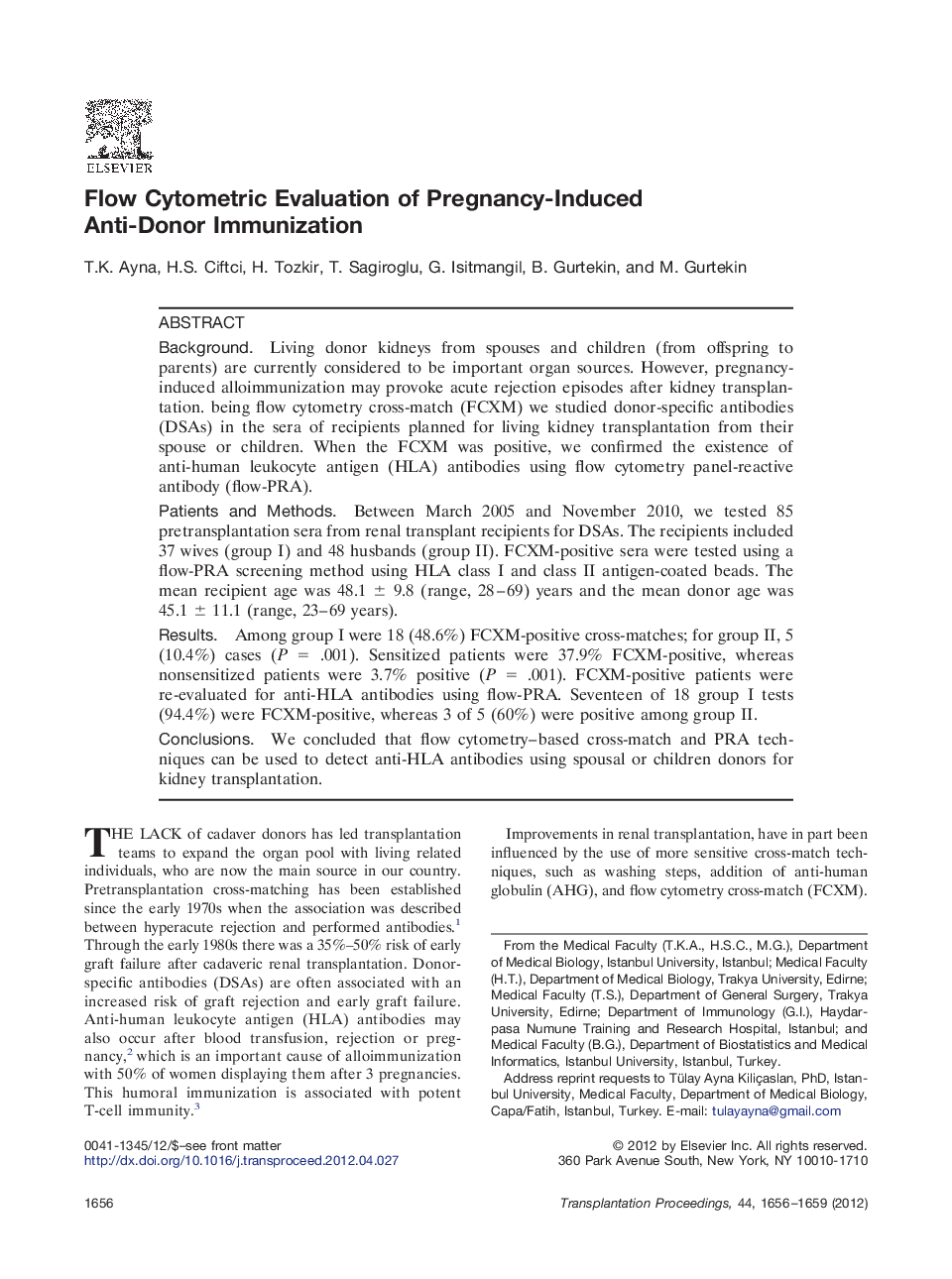| Article ID | Journal | Published Year | Pages | File Type |
|---|---|---|---|---|
| 4259931 | Transplantation Proceedings | 2012 | 4 Pages |
BackgroundLiving donor kidneys from spouses and children (from offspring to parents) are currently considered to be important organ sources. However, pregnancy-induced alloimmunization may provoke acute rejection episodes after kidney transplantation. being flow cytometry cross-match (FCXM) we studied donor-specific antibodies (DSAs) in the sera of recipients planned for living kidney transplantation from their spouse or children. When the FCXM was positive, we confirmed the existence of anti-human leukocyte antigen (HLA) antibodies using flow cytometry panel-reactive antibody (flow-PRA).Patients and MethodsBetween March 2005 and November 2010, we tested 85 pretransplantation sera from renal transplant recipients for DSAs. The recipients included 37 wives (group I) and 48 husbands (group II). FCXM-positive sera were tested using a flow-PRA screening method using HLA class I and class II antigen-coated beads. The mean recipient age was 48.1 ± 9.8 (range, 28–69) years and the mean donor age was 45.1 ± 11.1 (range, 23–69 years).ResultsAmong group I were 18 (48.6%) FCXM-positive cross-matches; for group II, 5 (10.4%) cases (P = .001). Sensitized patients were 37.9% FCXM-positive, whereas nonsensitized patients were 3.7% positive (P = .001). FCXM-positive patients were re-evaluated for anti-HLA antibodies using flow-PRA. Seventeen of 18 group I tests (94.4%) were FCXM-positive, whereas 3 of 5 (60%) were positive among group II.ConclusionsWe concluded that flow cytometry–based cross-match and PRA techniques can be used to detect anti-HLA antibodies using spousal or children donors for kidney transplantation.
